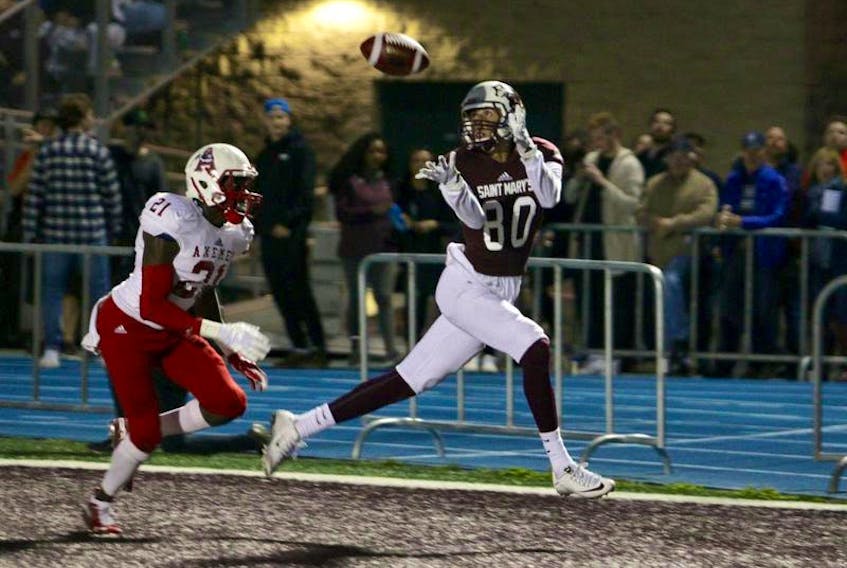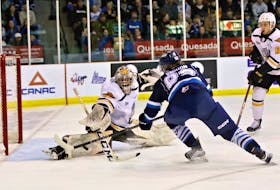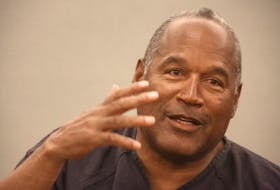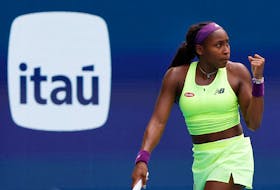There will be no university sports in Atlantic Canada during the fall semester.
The AUS announced on Monday it has cancelled all competition for leagues that usually open play in early September because of uncertainty around COVID-19. The decision was the same across all of U SPORTS in Canada.
“With the health risks attached to COVID and the travel restrictions, when you couple it all together it doesn’t take long to get to the conclusion it just wasn’t going to be possible,” AUS executive director Phil Currie said. “Some of our institutions have already decided to have online classes only in the fall so when you combine that with the health and safety of our student-athletes, there was just no way.
“And we’ve been in consultation with our colleagues across the country for months trying to figure this out, along with the financial challenges. There were so many parts of this to consider.”
The move means there will be no league play or championships for soccer, football, cross-country and rugby. But U SPORTS and the AUS have only limited the measure until January 1 at the moment so there is still some hope winter sports can be salvaged, even though some of those leagues traditionally open in October.
“What we could do with the cross-over sports between the fall and winter semesters is to truncate those seasons and come up with shorter schedules,” Currie said. “We could run those sports that way and still have championships. That’s what we hope but, again, we don’t have a definition for what a mass gathering would be in January so things like that will determine if we can even bring teams together.
“We also don’t know if we can bring teams together from across the region to host championships. There are just so many questions that we won’t be able to answer until at least the fall.”
Even as the pandemic appears to be coming under better control in Atlantic Canada compared to other parts of the country, Currie said it still wouldn’t be feasible to have the AUS operate in some sort of bubble independent of U SPORTS in the fall.
“In the early stages there were discussions about what it could look like if others (across Canada) said no and we could go ahead here but I don’t think the inter-provincial travel restrictions are going to change dramatically as long as COVID is out there,” Currie said. “And just look at what happened recently in New Brunswick when someone travelled to Quebec and came back and caused a problem there.
“The risk is still there and that’s the point. Until there’s a vaccine, and in consultation with health professionals and provincial governments and so forth, there’s still too much risk. There are even signs for a resurgence in the fall so the worst-case scenario would be if we did start a season and then had to stop it halfway through. That would be even worse.”
Monday’s decision affects 11 universities in Nova Scotia, New Brunswick, Prince Edward Island and Newfoundland. U SPORTS leagues across the country have been shut down since late March.
Currie said player eligibility will not be negatively affected by the lost season and the schools all intend to honour scholarships even if those students can’t participate in their sport.
“Our hearts are broken for our student-athletes; there’s no question,” Currie said. “All of our energy and all of the things that we do are in support of our student-athletes so when we can’t fulfil our mission, that’s a painful day for university sport.”
Another potential glimmer of hope is that university athletics aren’t dependent on the same business model as professional sports or even junior hockey. There may come a point when games can be played in empty arenas or gyms. Other leagues can’t operate that way.
“People in seats are important to institutions because the gates do play a part in the athletic departments’ budgets,” Currie said. “However we can provide an opportunity to compete without fans probably easier than it would be for a professional team, that’s for sure.”









